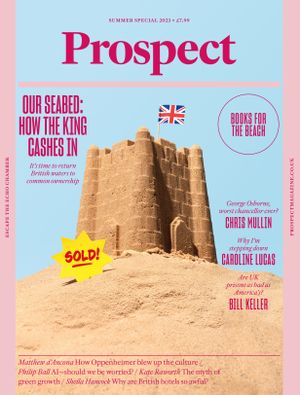What is the first news event you can recall?
Margaret Thatcher’s election in 1979. I remember coming home from primary school and seeing her outside Downing Street on the news. I had no idea of the impact that her election was about to have on the lives of my family, community and country.
If you could spend a day in one city or place at one moment in history, what would that be?
28th August 1963. Joining the March on Washington and ending the day listening to Martin Luther King’s historic “I have a dream” speech. The lines weren’t actually in his planned remarks, but improvised after he was prompted by gospel singer Mahalia Jackson from the side of the stage—with electrifying results. I’d have loved to have been there.
What is your favourite quotation?
Muhammad Ali said, “Service to others is the rent you pay for your room here on Earth.”
Which of your ancestors or relatives are you most proud of?
My dad. Not content with a comfortable middle-class life in Karachi, he travelled over 3,000 miles to build a better future for his family. He quickly fell in love with London—notwithstanding the challenges. He would see signs saying, “No Blacks, No Irish, No Dogs” when he tried to enter guest houses—and was made aware, in no uncertain terms, that anyone not white was considered “black”. His qualifications from Pakistan and experience in the air force were not enough to get him the job he hoped for. But he was able to work as a bus driver, which, with overtime, meant he earned a decent enough income to live on and also send money to his extended family.
What have you changed your mind about?
The importance of tackling climate change and air pollution. Until I got asthma following training for the marathon on London’s polluted roads, I had never been particularly “green”. When I was offered a salaried partnership in a law firm, I negotiated a parking space for my Saab convertible. I upgraded to a more spacious Land Rover Discovery, a huge gas-guzzling vehicle that spent almost its entire life being driven around the capital. As a member of parliament, I had even voted for a new third runway at Heathrow Airport.
What is the last piece of music, play, novel or film that brought you to tears?
The recent short film about Grenfell by Steve McQueen. Just over six years ago, London, the country and the world watched in horror as Grenfell Tower burned. It should have changed everything, but not nearly enough has happened.
London’s Ulez has its detractors. What, in brief, is the case you would like to make to them?
In 2019, we launched the world’s first Ultra Low Emission Zone in central London, which has helped to cut toxic air pollution by nearly half—four million Londoners are already benefiting. By expanding it to the whole of the city, five million more Londoners will breathe cleaner air. Clean air should be a human right, not a privilege.
The majority of vehicles in London are now Ulez-compliant and will not face charges. But I completely understand the concerns of those people worried about how they’ll make the transition. That’s why we’ve introduced a record multimillion-pound scrappage scheme to help families, businesses and charities.
Expanding the Ulez was a very difficult decision. But the evidence tells me that it is the right thing to do. Knowing what I do now—and having met bereaved family members such as Rosamund Adoo-Kissi-Debrah, mum of nine-year-old Ella whose death was linked to air pollution—I can’t kick the can down the road for the sake of my own political fortunes.
What do you most regret?
Giving up on my cricket dream when Surrey Cricket Club rejected me as a teenager. I should have kept going and tried again—instead, I didn’t play cricket again for years.
Sadiq Khan’s book “Breathe: Tackling the Climate Emergency” (Hutchinson Heinemann, £16.99) is out now













